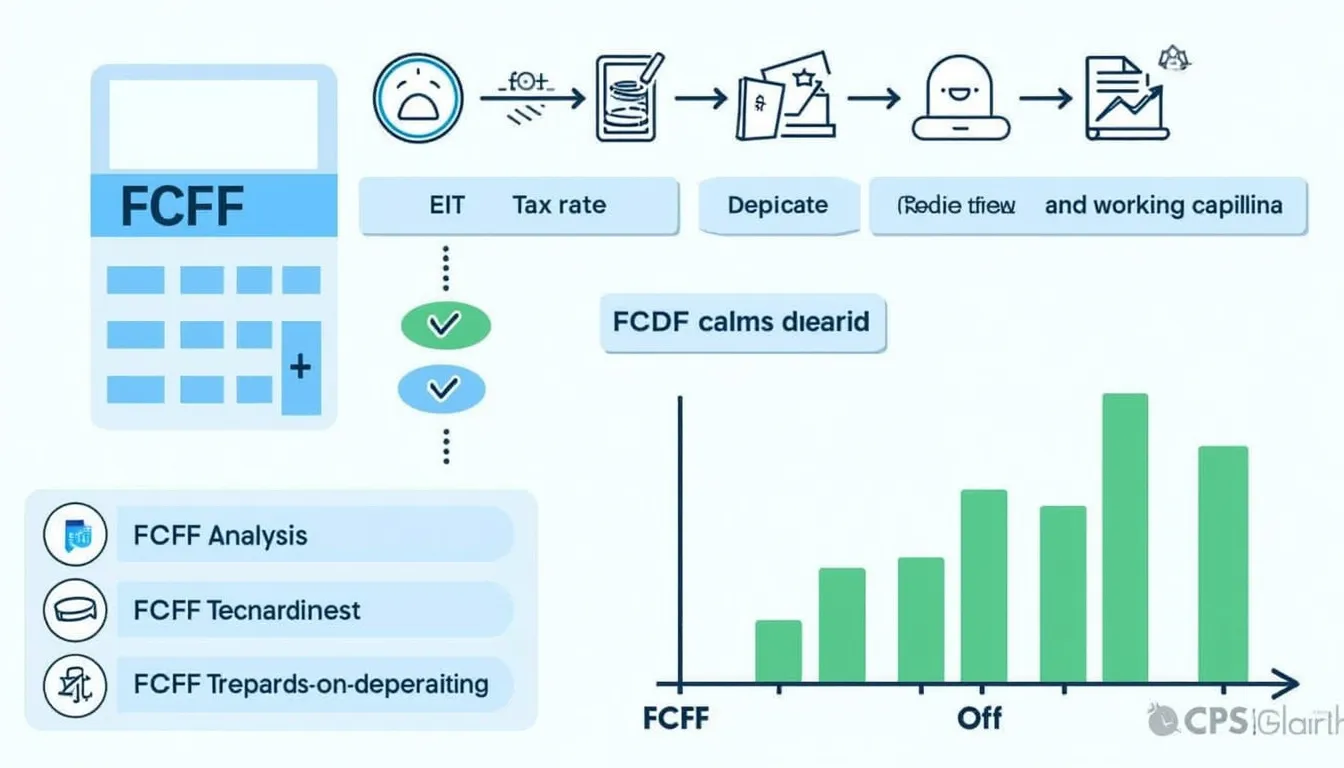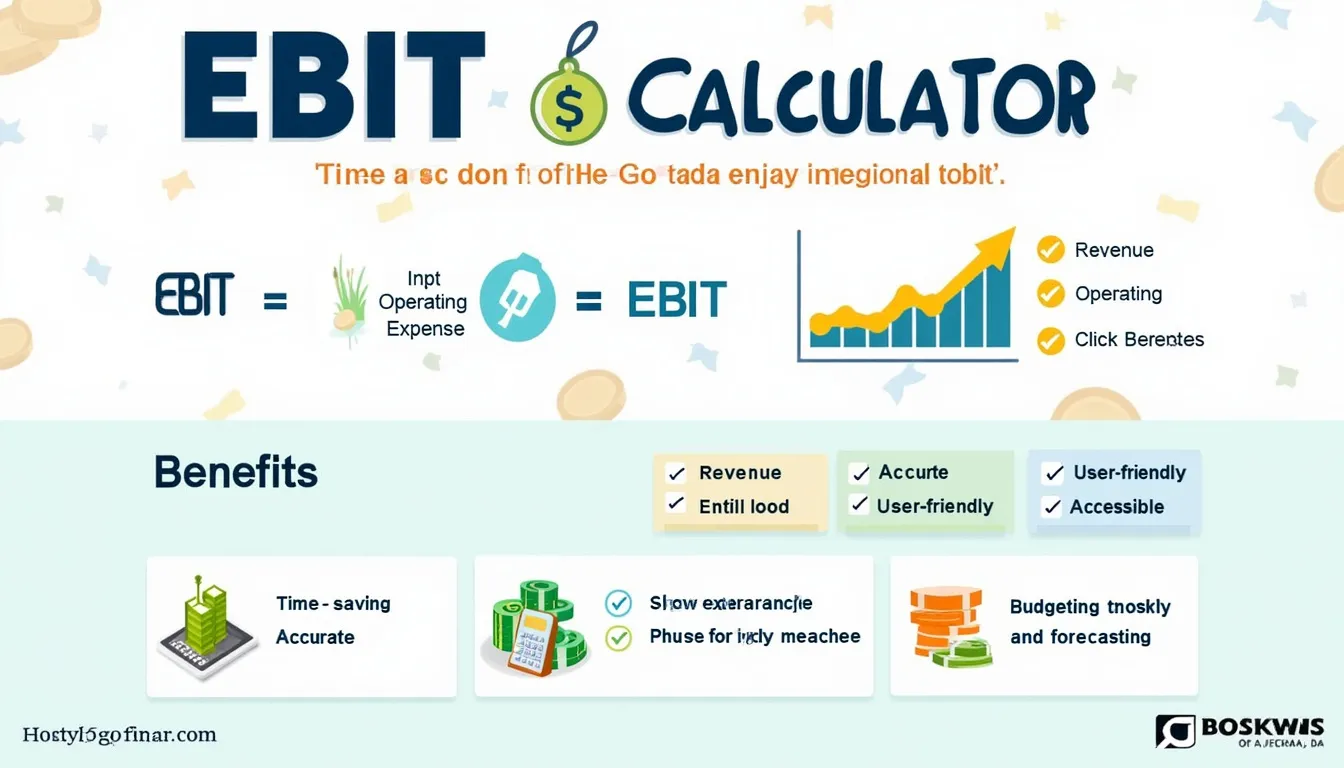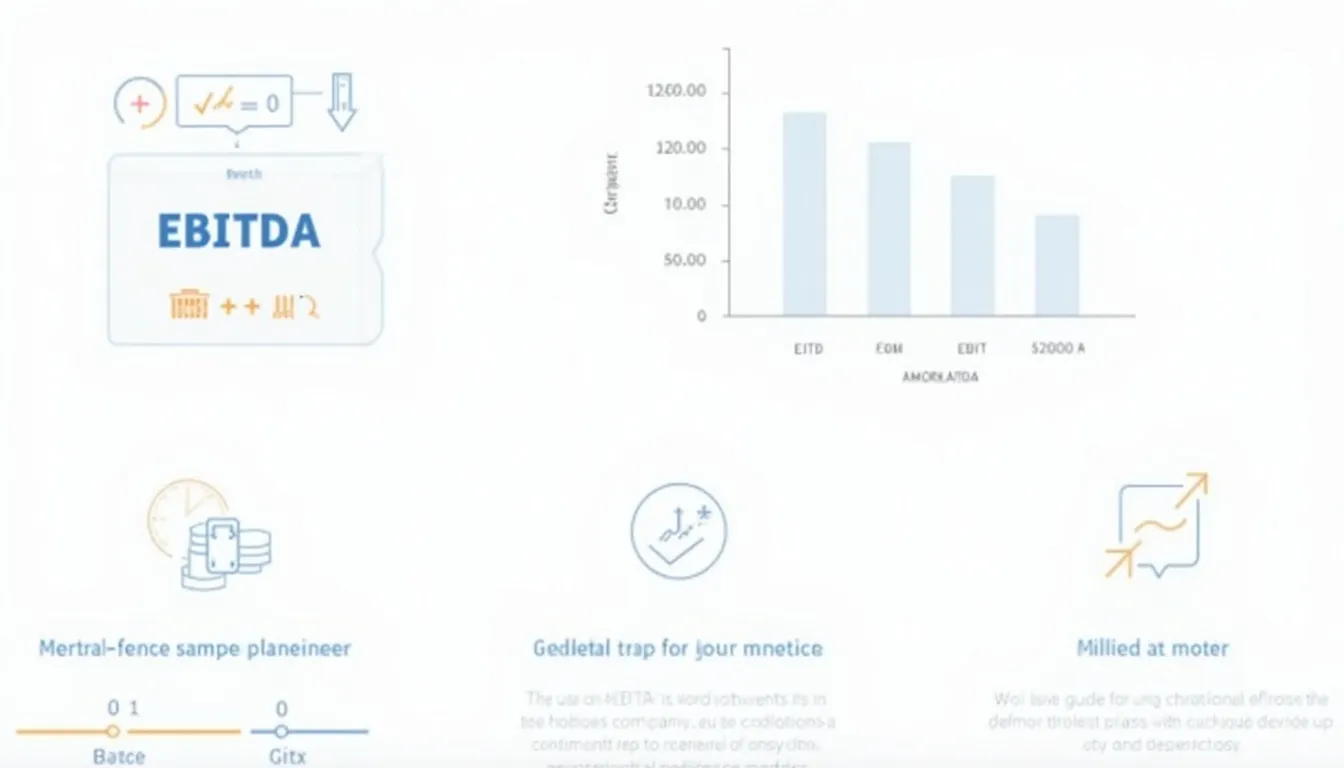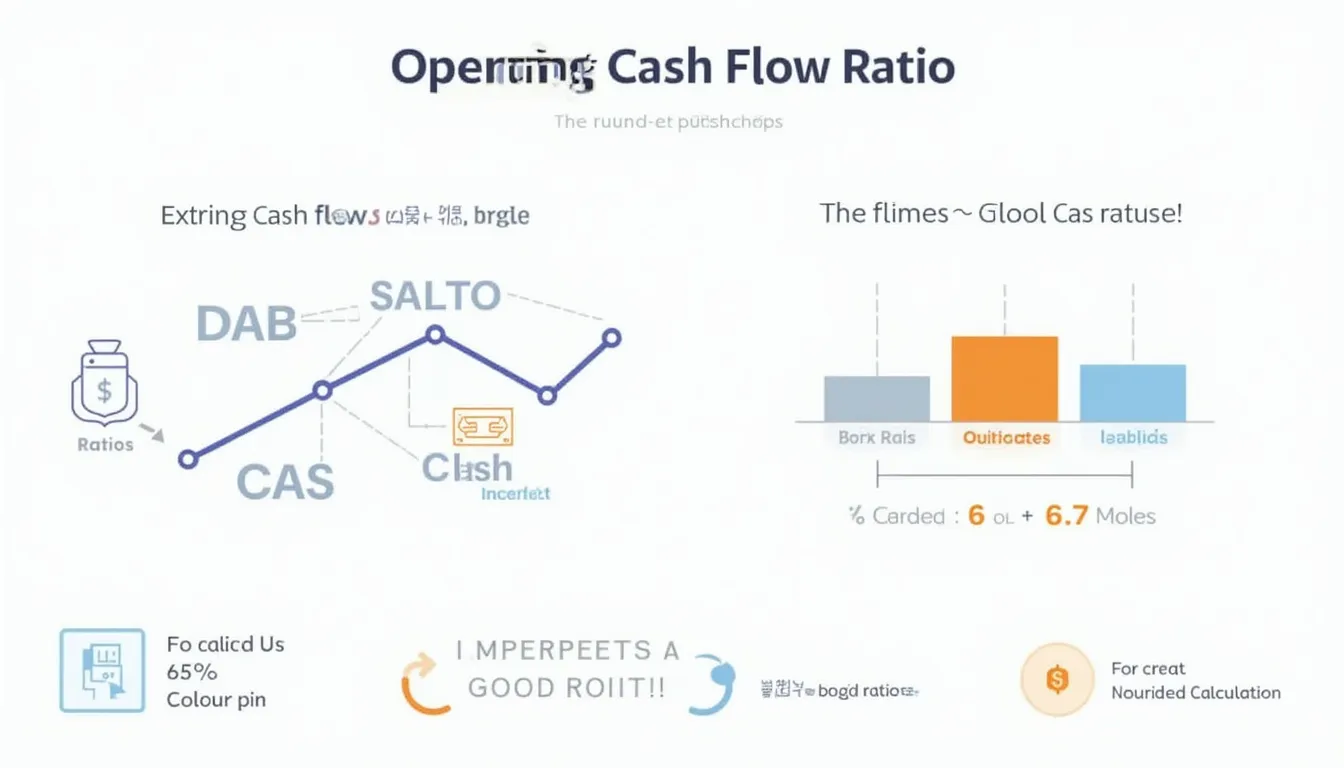Free Cash Flow to Firm (FCFF) Calculator
Is this tool helpful?
How to use the tool
- EBIT – type operating profit before interest and tax.
Examples: 1 800 000, 3 250 000. - Tax Rate (%) – input the effective corporate tax rate.
Examples: 18.5, 27. - Depreciation & Amortization – add non-cash charges for the period.
Examples: 250 000, 540 000. - Capital Expenditure – enter cash spent on long-term assets.
Examples: 420 000, 900 000. - Change in Working Capital – provide the net variation in current assets minus current liabilities.
Examples: 95 000, 140 000. - Press Calculate FCFF; the result appears instantly.
Formula used
$$\text{FCFF}=EBIT\; rac{}{ }(1-\text{Tax Rate})+D\!&\!A-\text{CapEx}-\Delta WC$$
Example calculation
- EBIT = 2 000 000
- Tax Rate = 25 % → 0.25
- D&A = 300 000
- CapEx = 450 000
- ΔWC = 120 000
$$\begin{aligned} \text{FCFF}&=2\,000\,000(1-0.25)+300\,000-450\,000-120\,000\\ &=1\,500\,000+300\,000-450\,000-120\,000\\ &=1\,230\,000 \end{aligned}$$
Quick Facts
- The average statutory corporate tax rate in OECD nations is 23.6 % (OECD, 2022).
- Capital expenditures in U.S. S&P 500 firms totalled $895 bn in 2022 (S&P Global, 2023).
- “FCFF is the preferred metric for valuing levered firms” (Damodaran, 2020).
- Working-capital swings explain up to 30 % of cash-flow volatility in manufacturing (McKinsey, 2021).
FAQ
What is Free Cash Flow to Firm?
FCFF is cash generated by operations after taxes, capex, and working-capital needs, available to debt and equity investors (Damodaran, 2020).
How does FCFF differ from FCFE?
FCFE subtracts net debt payments, so it measures cash only for shareholders, whereas FCFF ignores capital structure (Corporate Finance Institute, 2023).
When can FCFF turn negative?
Large capex or inventory builds can exceed operating cash, driving FCFF below zero; early-stage tech firms show this pattern (PwC, 2022).
How often should you calculate FCFF?
Analysts compute it quarterly for trend monitoring and annually for valuation models (Koller et al., 2020).
What is a healthy FCFF margin?
Manufacturing peers aim for 5 – 8 % of revenue; software firms average 12 % (S&P Capital IQ, 2023).
How do you forecast FCFF?
Project revenue, margins, capex, and working-capital ratios, then apply the same FCFF formula forward (Damodaran, 2020).
Why use FCFF in DCF valuation?
Discounting FCFF with WACC yields intrinsic enterprise value, neutralising leverage effects (Brealey, Myers & Allen, 2022).
Can lenders rely on FCFF?
Yes; rating agencies use FCFF to gauge debt-service capacity because it reflects pre-interest cash (Moody’s, 2022).
Important Disclaimer
The calculations, results, and content provided by our tools are not guaranteed to be accurate, complete, or reliable. Users are responsible for verifying and interpreting the results. Our content and tools may contain errors, biases, or inconsistencies. Do not enter personal data, sensitive information, or personally identifiable information in our web forms or tools. Such data entry violates our terms of service and may result in unauthorized disclosure to third parties. We reserve the right to save inputs and outputs from our tools for the purposes of error debugging, bias identification, and performance improvement. External companies providing AI models used in our tools may also save and process data in accordance with their own policies. By using our tools, you consent to this data collection and processing. We reserve the right to limit the usage of our tools based on current usability factors.







